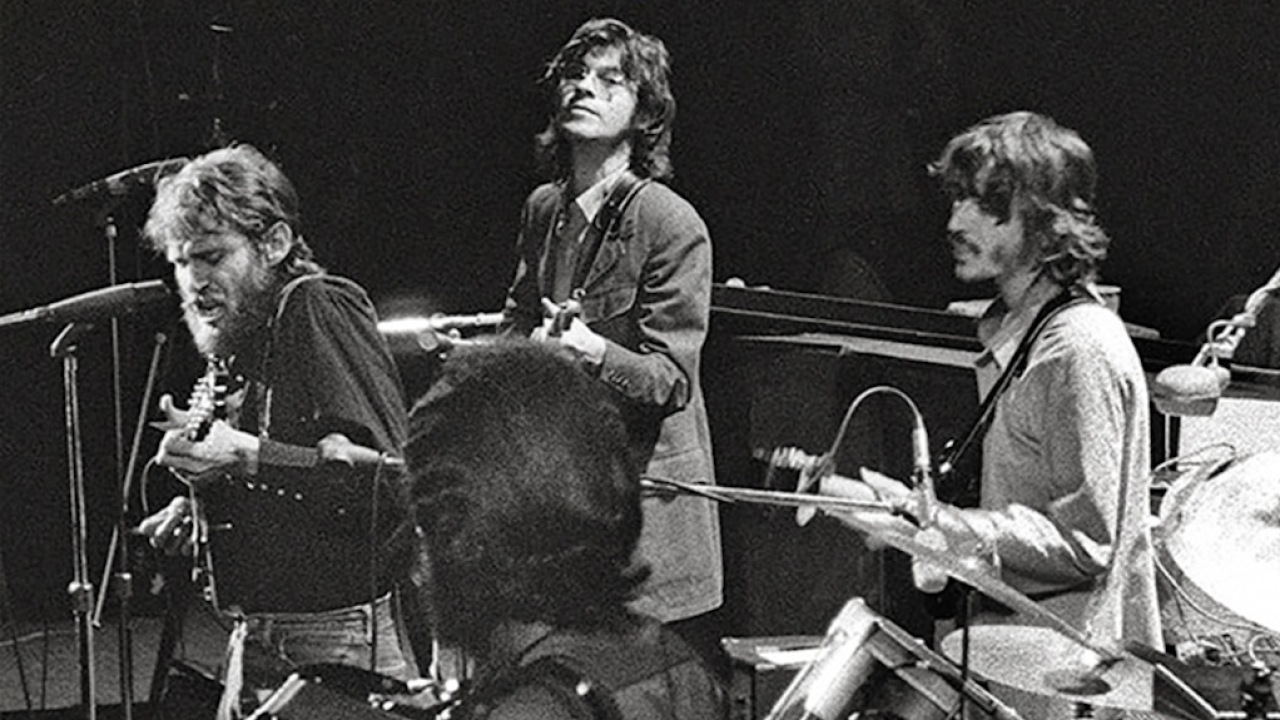They were well-named. For a couple of precious years at the end of the 1960s, The Band were blessed with a blend of singers, songwriters and players envied by every other group. They brought rock back from psychedelia to earthier basics, forcing fundamental change on everyone from The Beatles to Eric Clapton, who quit Cream and begged to be a Band member instead. Not bad for Dylan’s old backing musicians.
The initially unreleased Basement Tapes, home-made with Dylan in 1967, gave Robbie Robertson, Garth Hudson, Levon Helm, Richard Manuel and Rick Danko (all Canadian, bar Helm) the nudge to record by themselves. The game-changing Music From Big Pink (1968) included Manuel’s heartbreaking take on their old boss’s I Shall Be Released, alongside the wryly infectious, hit shaggy-dog tale The Weight.
They invented Americana with that one, but The Band (1969) shot them past everyone, Dylan included. This was southern Gothic, blues comedy and Confederate melodramas played by five hard-bitten roadhouse veterans. From the cracked sadness of Manuel’s broken chorister’s cry on Whispering Pines to The Night They Drove Old Dixie Down, they swapped unexpected instruments, and their three great vocalists – Helm, Manuel and Danko – blended in ragged harmony. It still sounds like rock’s biggest miracle.
That didn’t last. Stardom didn’t suit the previously anonymous friends, new pressures including copious amounts of booze and drugs for the singers. Robbie Robertson, their stinging guitarist, took up all the songwriting slack, reflecting shaken psyches with the title track of Stage Fright (1970), and the wracked yet jaunty The Shape I’m In. Stage Fright was mostly great, but Cahoots (1971) had genuine duds.
Rock Of Ages (1972), bolstered by New Orleans great Allen Toussaint’s blazing horns, is one of rock’s most beautiful live double-albums. Moondog Matinee (1973) was a second successful holding operation – a 50s and 60s covers album on which Danko and Manuel’s voices ached as deeply as ever, even as they struggled for anything further to say.
Northern Lights-Southern Cross (1975) was a partial return to form, including Robertson’s Canadian refugee epic Acadian Driftwood. Islands (1977), released after all-star live swansong The Last Waltz (not included here), was a sloppy contract-filler which showed how far they’d fallen from their early, fragile perfection.
Finished LPs weren’t available at press-time, but original analogue tapes have been used for this reissue.

